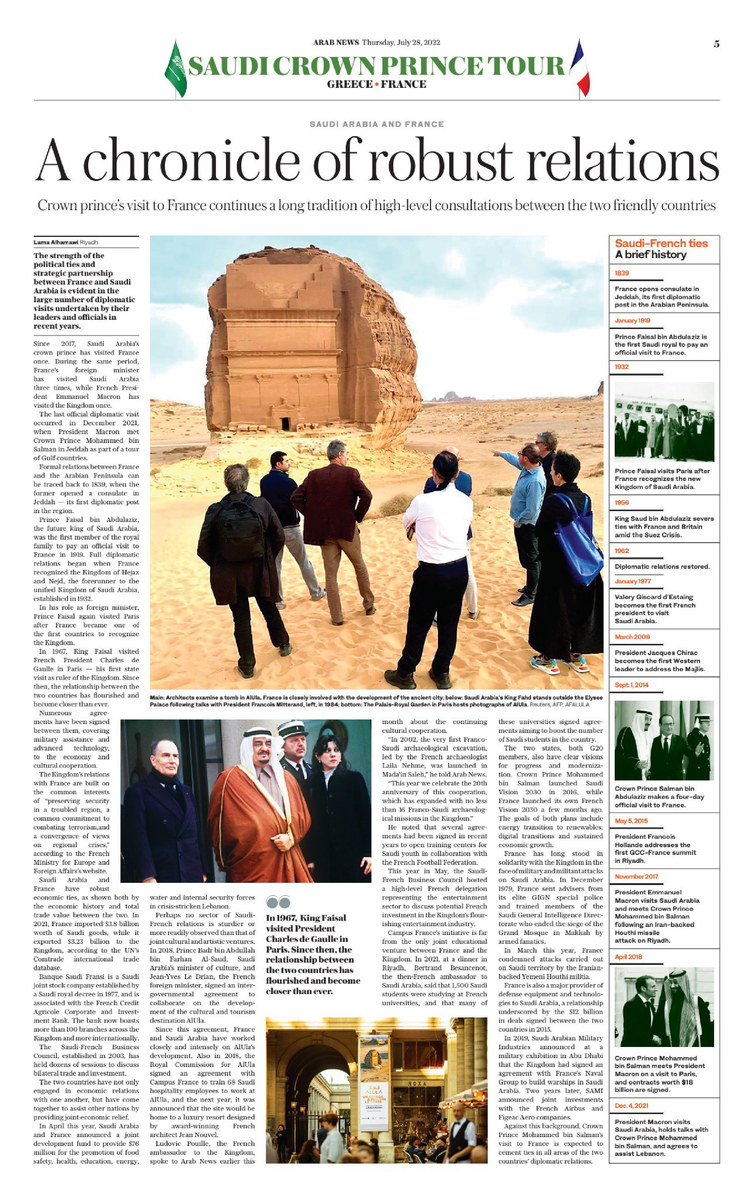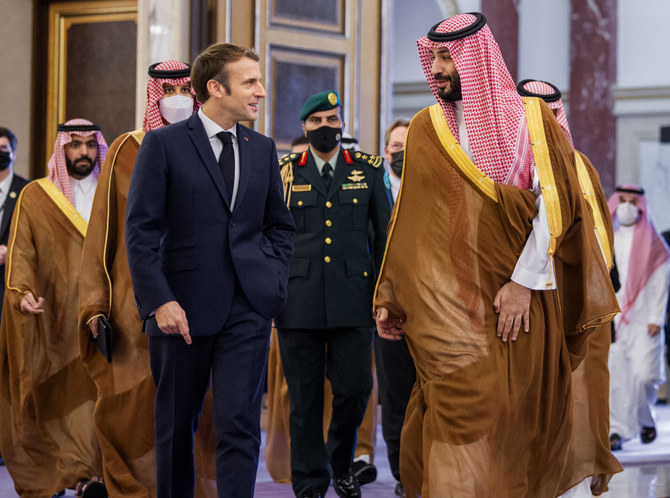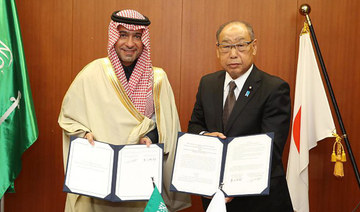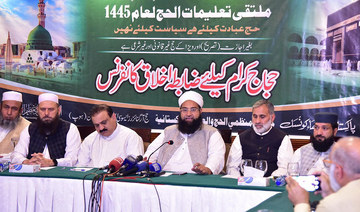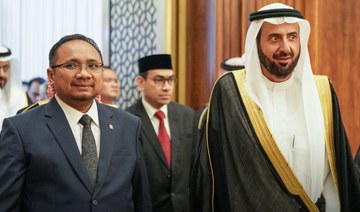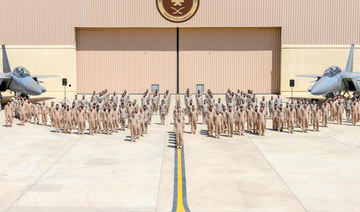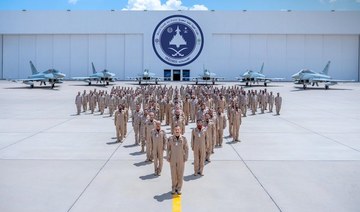PARIS: What can Saudi Arabia do to help France ease the looming energy crisis resulting from the ongoing Russian invasion of Ukraine, and what can France — and Europe — do to support Saudi Arabia and the Gulf countries if the Iranian nuclear deal falls by the wayside?
These questions, potential political emergencies, weigh heavily on the talks in Paris between Saudi Crown Prince Mohammed bin Salman and French President Emmanuel Macron. During their meeting, the two leaders will strive to find solutions.
David Rigoulet-Roze, associate researcher at the Institute of International and Strategic Relations, is of the view that the crown prince’s visit “is part of a resumption of contact with Europeans in general, in the context of the war in Ukraine and the ensuing energy problem.”
Preparing for the post-oil period, on June 2 the informal alliance of OPEC and non-OPEC oil-producing countries, sometimes referred to as OPEC+, agreed to increase production by 216,000 barrels per day in addition to the 432,000 bpd set in previous months.
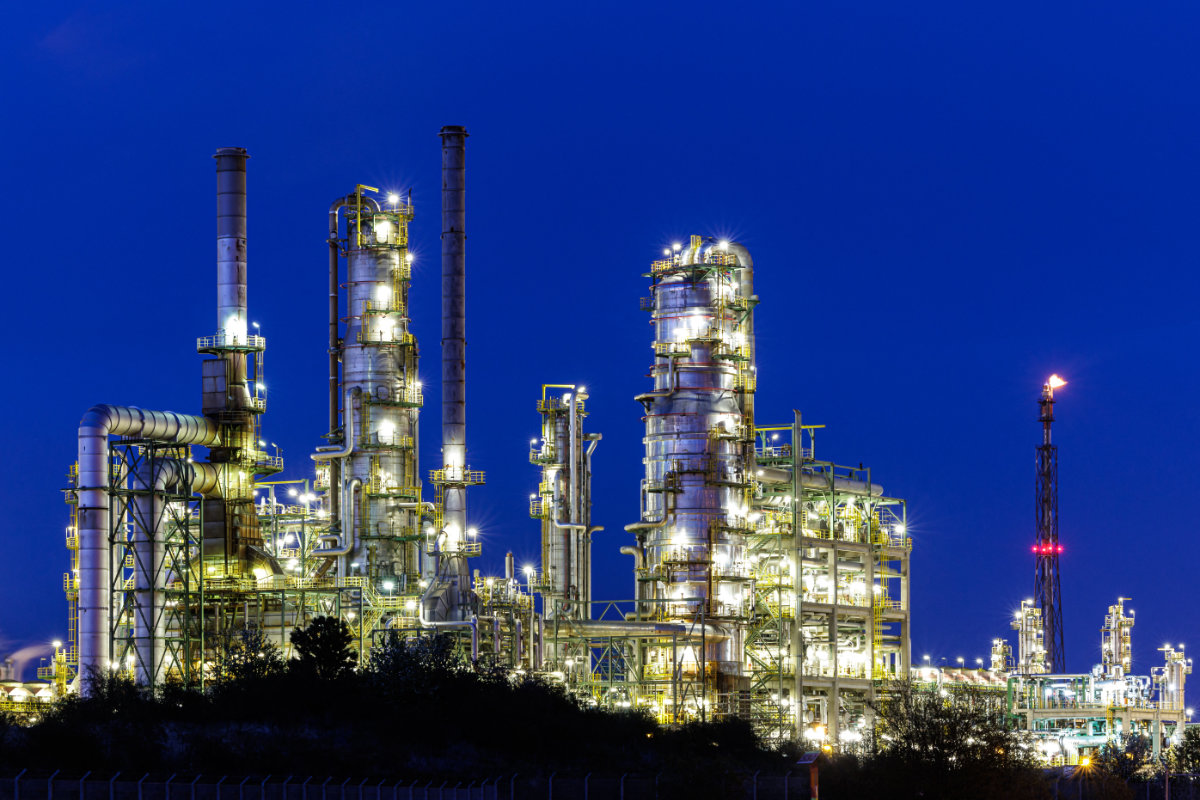
If Europeans need to secure their energy supply, for the Gulf countries it is a question of preparing for the post-oil period. (SPA file)
However, this increase does not seem to be of a sufficient level to reassure Europeans, especially as winter approaches.
It is therefore necessary to continue efforts to alleviate the effects of the embargo on Russian oil imports, says Rigoulet-Roze. The natural gas sector is also under pressure, so “it is hoped that the Gulf countries will lend a sympathetic ear to the pleas for energy supplies.”
If Europeans need to secure their energy supply, for the Gulf countries it is, above all, a question of preparing for the post-oil period.
“Europe in general, and France in particular, hopes that the petromonarchies will prove receptive to their requests for guaranteeing hydrocarbon supplies. The Gulf countries, for their part, would like to develop synergies with Europe on this subject,” Rigoulet-Roze told Arab News en Francais.
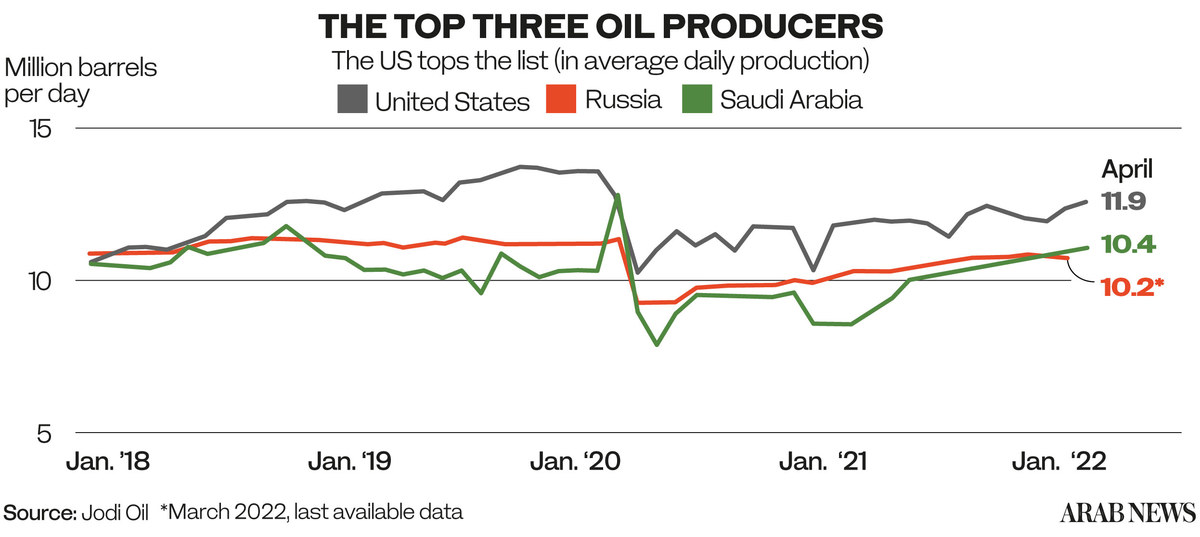
“In this context, Europe and France have expertise, particularly with regard to renewable energies, whether green hydrogen, solar, wind.”
Regarding the burning Middle East geopolitical issues and the deadlock in Iranian nuclear negotiations, the picture is not so clear. “Overall, it looks like the JCPOA renegotiation will be difficult to finalize and that is what the US now thinks due to a proven form of obstruction on the part Iran,” Rigoulet-Roze said.
“It is in this context that US President Joe Biden’s tour took place, focused in particular on the establishment of a regional security system in which Saudi Arabia would constitute a central piece, even if Riyadh has not yet agreed to normalization of relations with Tel Aviv, unlike the fellow GCC members who have committed themselves to the Abraham Accords.”
Both the French and the Americans continue to say that they are in favor of signing a new nuclear accord with Iran, but time is running out, Rigoulet-Roze said, adding that President Macron reiterated the point a few days ago during a telephone conversation with Iranian President Ebrahim Raisi.

Iran's nuclear ambitions had been a cause for concern among countries in the Middle East region. (AFP)
France has positioned itself in a way to maintain a channel of discussion with Iran, because it is not possible to cut ties. Macron adopts a similar approach vis-a-vis Russian President Vladimir Putin, believing that it is necessary, despite the circumstances, to try to keep the channels of dialogue open.
“This approach with President Vladimir Putin has been criticized because it has not necessarily been successful and it may be the same with Tehran. But he considers that it is still necessary to try,” Rigoulet-Roze said.
But if the Iranian nuclear deal were to eventually fall apart, what would happen the next day?
To Rigoulet-Roze, the problem is that Europe does not yet have a strategic identity, and is “not a partner” like the US.
“It will therefore be necessary to return to the strengthening of the regional architecture envisioned by the US, with all the difficulties that this implies,” he said.

The US would like to set up a kind of Israeli-Arab-Sunni NATO equipped with an anti-ballistic system to mitigate the growing threat of drones, and even missiles, of Iranian origin, used by Tehran’s proxies in Yemen or elsewhere.
The UAE indicated at the end of Biden’s Middle East tour that it does not intend to be part of any anti-Iranian axis. The same message, in a more modified way, has come from Jordan, according Rigoulet-Roze.
The tipping point will come only when it becomes clear whether the nuclear agreement will be saved or not “and until this is established, the different countries concerned will have difficulty in communicating their official positions with clarity,” Rigoulet-Roze said.
“The Iranians are stalling the process. It is becoming clear that we will not be able to finalize an agreement as we still hoped for at the beginning of 2021 when negotiations were relaunched,” he added.
FASTFACT
History of modern France
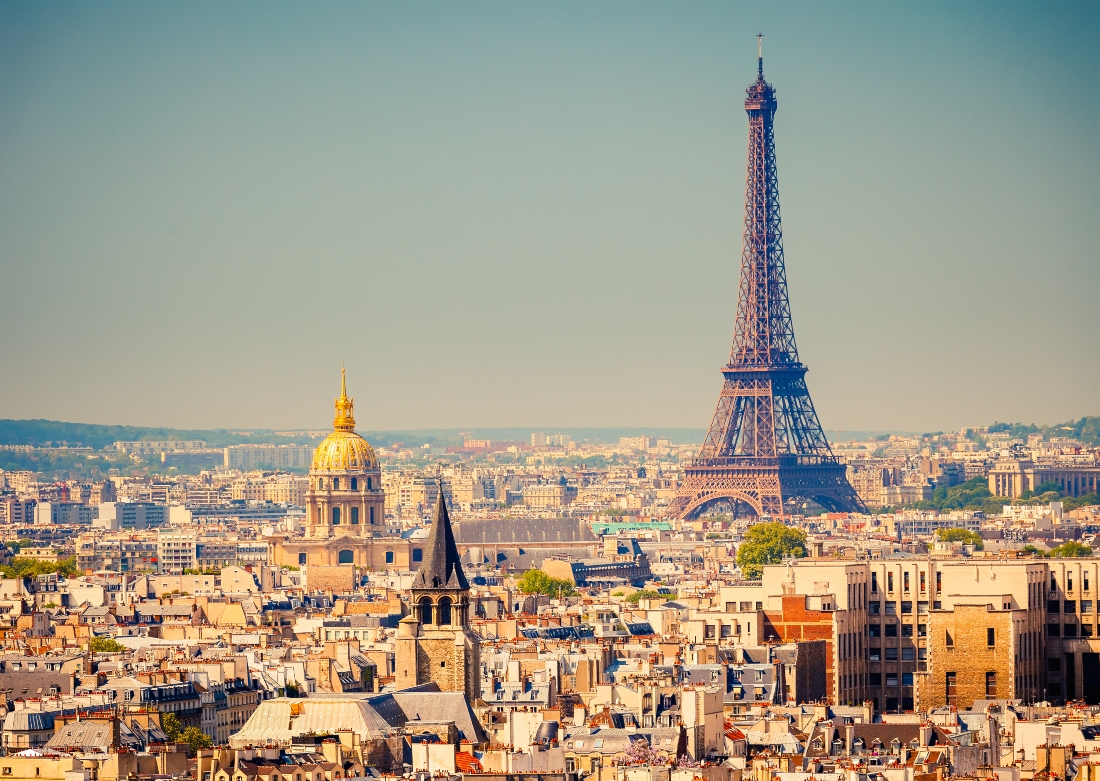
(SHUTTERSTOCK)
The French Revolution of 1789 saw France transform from a monarchy to a republic, which came under the control of Napoleon Bonaparte 10 years later.
After he became emperor of the First French Empire from 1804-1814, his armies conquered large swaths of continental Europe. Another monarchy emerged from the wake of Napoleon’s defeat at Waterloo in 1815, and Napoleon’s nephew created the Second Empire in 1852, becoming the last monarch to rule over France.
He was ousted and the monarchy was replaced by the Third French Republic in 1870. Throughout the 19th century and early 20th century, France maintained a large colonial empire across West Africa, Southeast Asia and the Middle East.
France sided with the Allied Powers during the Second World War, but was split in two during the conflict, with most of the country controlled by a collaborationist, pro-German government.
The country slowly recovered after the end of the war, but long wars in its colonies in Indochina (now Vietnam) and Algeria saw it ousted from these regions, and by the 1960s, most of France’s former colonies had achieved independence.
France has been a full member of the UN Security Council and NATO since the end of the Second World War, and played a vital role in the establishment of the EU. France has a large Muslim and Arab population owing to its former colonies in north Africa, and many of these populations suffer from social alienation and high unemployment rates.
The country has been the site of unrest and protests against the enforcement of strict secular policies and controversial bills, some of which have attempted to ban the wearing of headscarves or traditional Muslim face coverings in public.
